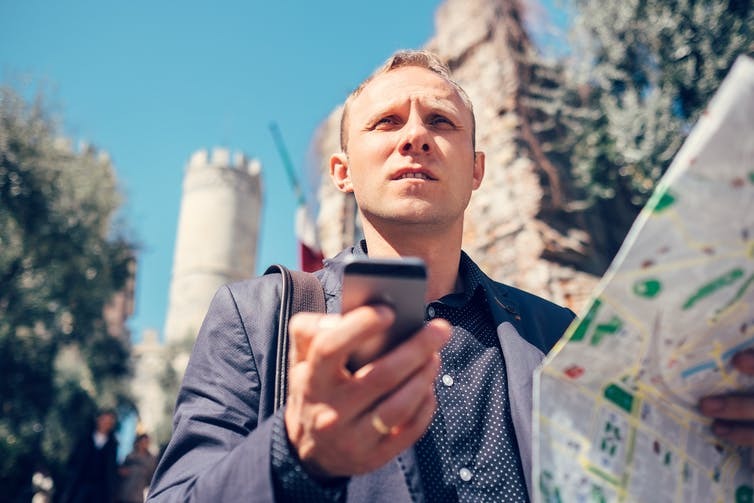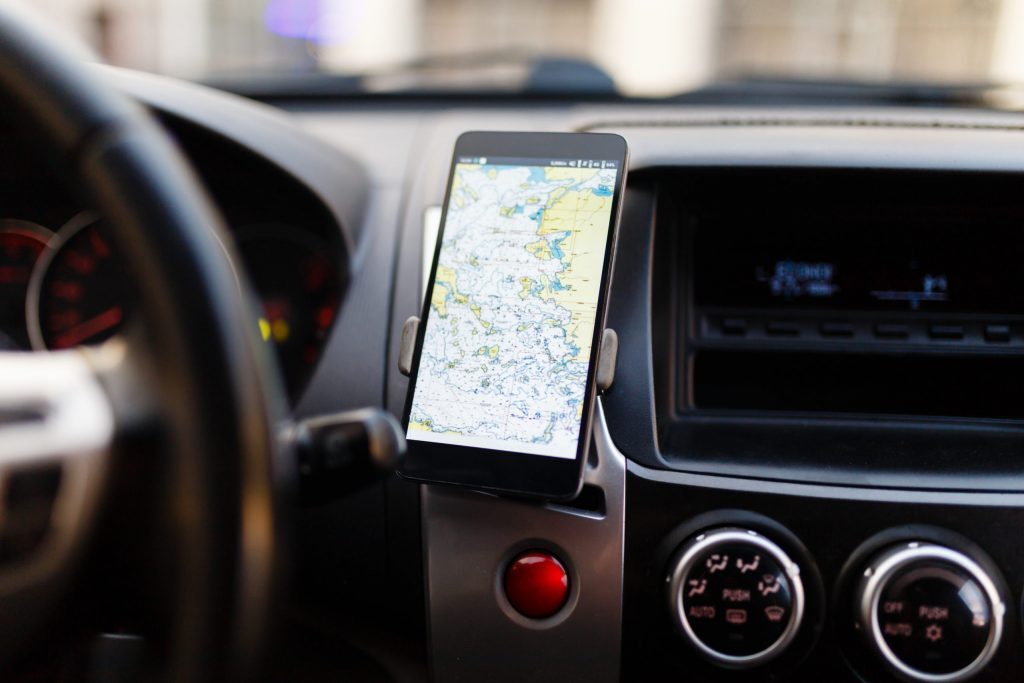Many of us have had the experience of arriving in an unfamiliar city and needing to get to a specific destination – whether it’s checking in at a hotel, meeting a friend at a local brewery, or navigating to a meeting on time.
With a few clicks of the smartphone, the destination is inputted into a navigational app, with customized route preferences to avoid traffic, tolls and, in cities like San Francisco, even inclines. Anxiety abated, one drives to one’s destination via voice prompts and the occasional illicit glance at the constantly updating map.
But, after having arrived safely, there is the vague awareness that we don’t know how we got there. We can’t remember the landmarks along the way, and, without our handheld device, certainly couldn’t get back to our origin point. That raises the larger question: Are the navigational capacities of our smartphones making us worse navigators?
Research points to yes. But, given the ubiquity of these devices, as well as their ability to enable particular groups, perhaps we should learn to embrace them as a technological prosthetic.
Worse at finding our way
All cultures practice wayfinding – sensing one’s environment for barriers to travel, then navigating spatially to a remote destination.
Geographers (like myself), psychologists, anthropologists and neurologists have all studied how individuals navigate from point A to point B. In a landmark 1975 paper, psychologists Alexander Siegel and Sheldon White argued that people navigate via their knowledge of landmarks against a larger landscape. New navigational routes are discovered via the linking of familiar landmarks with new ones.
For example, Inuit people, faced with snowy, topographically uniform landscapes, are attentive to subtle cues like snowdrift shape and wind direction. Until the advent of GPS devices, those cultures had no cultural conception of the idea of being lost.
Research has established that mobile navigational devices, such the GPS embedded in one’s smartphone, make us less proficient wayfinders. Mobile interfaces leave users less spatially oriented than either physical movement or static maps. Handheld navigational devices have been linked to lower spatial cognition, poorer wayfinding skills and reduced environmental awareness.
People are less likely to remember a route when they use guided navigation. Without their device, regular GPS users take longer to negotiate a route, travel more slowly and make larger navigational errors.
While physical navigation and static maps require engagement with the physical environment, guided navigation enables disengagement.

Expanding the view
However, that doesn’t mean mobile navigation is all bad. A blanket demonization of these devices may be a form of “ethnonostalgia,” where we find ourselves sentimental for an imagined simpler place and time. Technological advances, historically, have liberated humans from toil and suffering.
Further, many of our experiences are mediated through technology. Drivers use cars, hunters use guns, and many of us are constantly on our smartphones. In short, as sociologist Claudio Aporta and ecologist Eric Higgs put it, “Technology has become the setting in which much of our daily lives take place.”
In his seminal 1997 article, geographer Robert Downs argues that spatial technologies need not replace geographic thinking, but rather serve as a prosthesis, supplementing our spatial awareness. The increased access to information gives people a new way to quickly and easily explore new landscapes – which can then lead to physical exploration of said landscapes (many of my fellow map nerds do this all the time). We can then focus less on the rote memorization of place names in favor of a deeper understanding of the topography.
While research shows that use of handheld navigational devices can lead to lower spatial knowledge, that may not necessarily be the device’s fault. Those most likely to use guided route navigation are already the least confident in their own navigational capabilities; further use of navigational devices leads to a negative feedback cycle, where people become more reliant on their devices and less spatially aware.
What’s more, for some groups, these devices are enabling. Handheld navigational devices can now enable independent wayfinding by those who are sight-impaired. While not without their drawbacks, handheld navigation can empower those with spatial orientation challenges, be they real or imagined.
- is Lecturer of Spatial Sciences, University of Southern California – Dornsife College of Letters, Arts and Sciences
- This article first appeared on The Conversation





